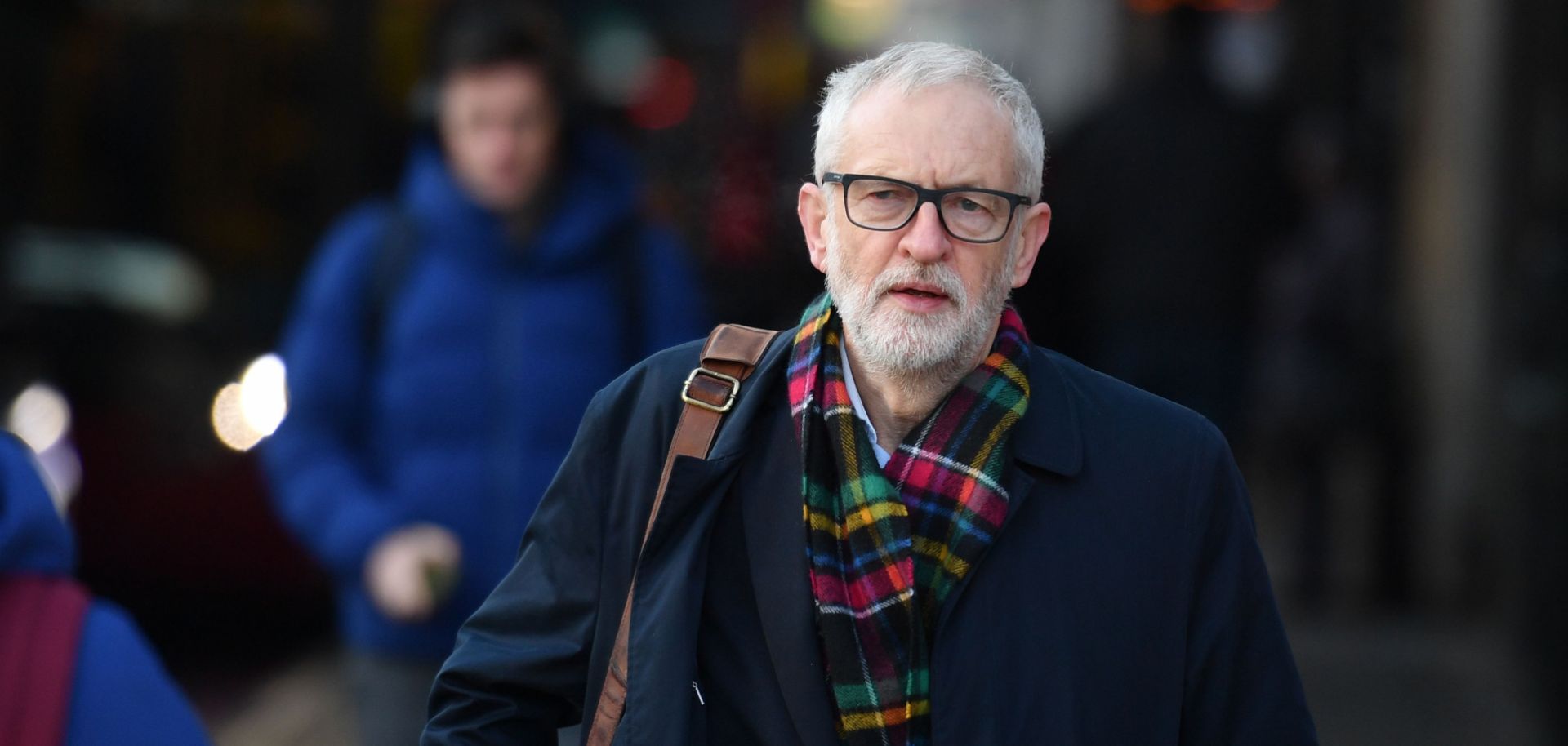ASSESSMENTS
What the U.K. Vote Means for Brexit and Business
Dec 6, 2019 | 16:14 GMT

Labour Party leader Jeremy Corbyn campaigns outside Finsbury Park station in London on Dec. 2. Britons will vote to fill all 650 seats in the House of Commons on Dec. 12 in an election that might finally bring an end to the United Kingdom's Brexit saga.
(DANIEL LEAL-OLIVAS/AFP via Getty Images)
Highlights
- A new, Conservative-led government would increase the likelihood of the United Kingdom leaving the European Union with a deal by late January 2020.
- A Labour-led government, however, would increase the probability of a new Brexit referendum in which voters could choose to remain in the European Union.
- But even if there is an orderly Brexit in 2020, negotiations between the European Union and the United Kingdom over a free trade agreement will face complications over issues such as the country's alignment with EU norms and the future of the British financial services sector.
Subscribe Now
SubscribeAlready have an account?
